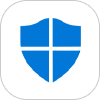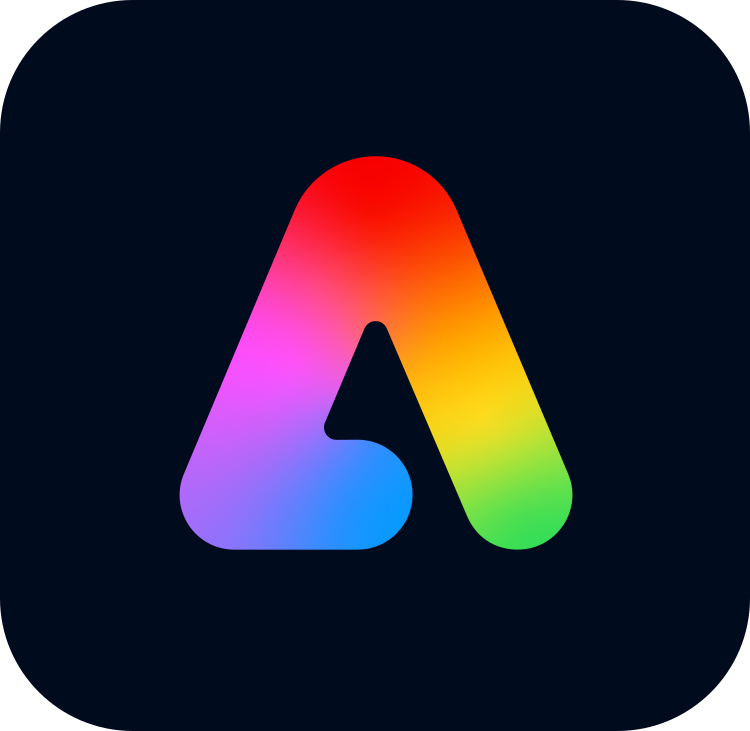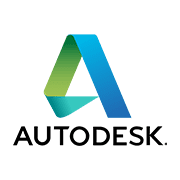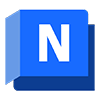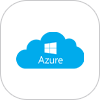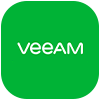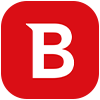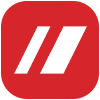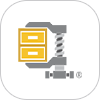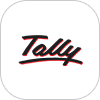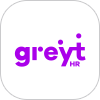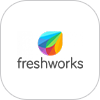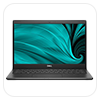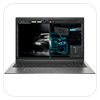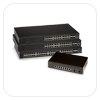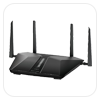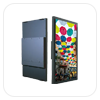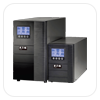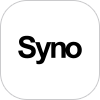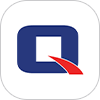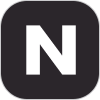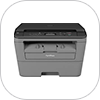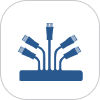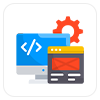
Choosing the appropriate Network Attached Storage unit is crucial for businesses of any size. A NAS includes centralized storage, backup, and file-sharing functions, as well as a number of other value-added features. It is quite difficult to select the right NAS solutions, as there are a number of different manufacturers providing a mix of features and capabilities. Synology, QNAP, and Western Digital are three of the most popular NAS solutions.
Western Digital also sells internal and external drives, they mostly focus on their MyCloud series, which is pre-configured for home and small businesses that have less complicated needs. In contrast, Synology and QNAP are professional NAS producers, offering much more powerful and feature-filled devices that range from small workgroups to large enterprise applications.
The comparative study will present all of the touchpoints in regard to NAS devices among the three vendors, Synology, QNAP, and Western Digital. We will highlight their good and bad sides as well as the intended end users.
| Feature | Synology | QNAP | Western Digital |
| Hardware | Wide range, often uses Intel processors | Wide range, uses Intel and AMD processors | More limited range, simpler configurations |
| Software/OS | DSM: User-friendly, rich features, large app ecosystem. | QTS, QuTS hero: rich features, advanced options (ZFS), large app ecosystem | My Cloud OS: Simple, basic features, smaller app ecosystem. |
| Ease of Use | Very easy to use. | Steeper learning curve than Synology. | Very easy to use. |
| Performance | Strong performance in high-end models. | Strong focus on hardware performance. | Adequate for basic tasks. |
| Scalability | Supports expansion units | Supports expansion units | Limited scalability. |
| Reliability | High | High | Usually, reliable |
| Price | Mid-range to high-end | Competitive with Synology | More affordable. |
| Security | Built-in firewall, 2FA, encryption, and regular updates. | Security options include encryption, 2FA, and QuFirewall. | Basic security, fewer advanced options. |
| Target Audience | SMBs, creative pros, and advanced home users. | SMBs, enterprises, and tech-savvy users. | Home users, very small businesses. |
| Third-Party Integrations | Extensive third-party apps (e.g., Plex, Docker, cloud services) | Wide app library, strong virtualization support (Docker, VM) | Limited third-party app support. |
In-Depth Analysis:
Synology
Synology is known for its user-friendly DiskStation Manager (DSM) operating system. The DSM has a graphical user-friendly interface, enough for those with limited technical expertise, making it a natural fit for small to medium-sized businesses (SMB) that usually do not have their own IT staff.
-
Hardware:
Synology has an extensive hardware range, from entry-level 2-bay units to high-end rackmount servers with a number of drive bays, powerful processors, often Intel-based, and lots of RAM. As an added bonus, they usually also provide good connectivity options, including multiple Gigabit Ethernet ports and USB ports for external storage or UPS integration. Some premium models also give you 10GbE ports and PCIe expansion slots for adding network cards or NVMe SSD cache.
-
Software/Applications/Operating System:
DSM is one of Synology’s standout features. It offers a wide range of applications, ranging from file sharing through SMB/CIFS, NFS, and AFP, to comprehensive backup solutions with Synology Hyper Backup, Time Machine support, and snapshot replication. DSM also includes advanced security features like antivirus, firewall, and intrusion prevention. For virtualization, it supports both Virtual Machine Manager and Docker. As for multimedia, it integrates well with Plex Media Server and Video Station. The App Center further expands its features with a rich selection of first-party and third-party applications.
-
Performance:
Synology NAS devices, especially the higher-end range, provide excellent performance with strong read and write speeds. The performance is further enhanced when you enable the SSD caching. These devices are well-suited for both everyday tasks and demanding workloads like media streaming, virtualization, and large file transfers.
-
Scalability:
It offers several models that support expansion through dedicated expansion units, allowing users to scale from entry-level setups to high-demand environments as their storage needs grow.
-
Reliability and Support:
Reliability is synonymous with Synology, as far as hardware and software are concerned. You get a standard warranty with extensive online material, including documentation, tutorials, and community forums.
-
Price:
These devices are generally in a price range from mid to high-end. This is typical for Synology and reflects the quality of their hardware as well as the depth and versatility of their software features.
-
Target Audience:
Synology NAS devices have a vast target audience. From Small and medium-sized enterprises (SMEs) to creative professionals and even tech-savvy home users who appreciate seamless operation, ample functionality, and a robust software ecosystem.
QNAP:
QNAP is again among the major players in the NAS market, often rivalled by Synology. The QTS operating system has undergone several transformations, developing into a more user-friendly platform. However, it is a bit difficult to learn compared to DSM. It is often preferred by users with some technical proficiency.
-
Hardware:
QNAP offers a wide and varied selection of hardware products, ranging from small desktop appliances to high-density rackmount servers. They emphasize hardware versatility with features like multiple M.2 NVMe slots for caching, greater flexibility through PCIe expansion slots, which support a variety of add-on cards, such as 10GbE, Fibre Channel, graphics cards for AI applications, and even Thunderbolt ports in some models. QNAP devices typically use both Intel and AMD processors across their product lines.
-
Software/Operating System (QTS/QuTS hero):
There are two main operating systems provided by QNAP: QTS, a Linux-based system for general users, and QuTS hero, which is based on the ZFS file system, for more data-critical environments. It offers lots of other features similar to DSM, such as file sharing, backup solutions like Hybrid Backup Sync, Time Machine support, snapshots, advanced security tools, and virtualization platforms like Virtualization Station and Container Station. Multimedia applications are also well-supported. QuTS hero builds on these capabilities with the added advantages of the ZFS file system, including higher data integrity, inline data deduplication, and advanced compression, making it ideally suited for critical business data. QNAP also provides an advanced App Center with a large selection of both first-party and third-party applications to extend functionality.
-
Performance:
QNAP NAS units deliver good performance, especially in high-end models with advanced hardware configurations. Features like NVME caching and 10GbE connectivity significantly enhance data transfer speeds and overall system responsiveness.
-
Scalability:
Similar to Synology, QNAP offers add-on units for several of their models, enabling flexible storage expansion.
-
Reliability and Support:
QNAP is known for providing reliable hardware and software. It offers a standard warranty with multiple support channels, including comprehensive online documentation, a knowledge base, and technical support.
-
Price:
QNAP is competitively priced compared to Synology. However, higher-end hardware in some models comes at a comparable price, similar to Synology’s premium offerings.
-
Target Audience:
This would include SMBs, enterprises, and technically skilled individuals requiring high-performance, advanced hardware options, and possibly ZFS data integrity features (with QuTS hero).
Western Digital:
While Western Digital’s My Cloud product line has its presence in the NAS market, it majorly targets home users and small businesses, offering minimalistic storage and sharing capabilities.
-
Hardware:
Western Digital My Cloud NAS units usually feature a simpler hardware design, focusing on ease of use. They generally have fewer drive bays and limited expansion options in comparison to Synology and QNAP. The processors and RAM are also less powerful, reflecting the needs of their target market.
-
Software/Operating System (My Cloud OS):
Due to the simplicity and ease of use, My Cloud OS comprises basic file sharing capabilities (SMB/CIFS, AFP), backup options (SmartWare for Windows, Time Machine support), and remote access with the help of the My Cloud mobile and web apps. However, its application ecosystem is relatively limited, especially when compared to the robust offerings from Synology and QNAP.
-
Performance:
The performance of Western Digital My Cloud NAS devices is generally adequate for basic file sharing and backup tasks, but may not be suitable for demanding workloads or heavy multitasking.
-
Scalability:
As a rule, scalability is limited by Western Digital My Cloud devices, giving them few options for adding bay devices or extending their functionalities.
-
Reliability and Support:
Western Digital is a big name when it comes to reliability and producing quality hard drives. They have a standard warranty and support resources.
-
Price:
Most Western Digital My Cloud NAS devices are generally more affordable than their counterparts from Synology and QNAP. As a result, they are a good option for users looking for a budget-friendly NAS solution.
-
Target Audience:
Home users, very small businesses with basic requirements for storage and sharing, and simplicity and affordability seekers.
And the Big Winners Are…. in the specific categories:
Best Overall for SMBs: Synology. Definitely, it’s a well-rounded choice for small to medium-scale businesses due to its user-friendliness, feature richness, strength of performance, and support.
Best for Advanced/High-Performance Users: QNAP. Because of its major emphasis on advanced hardware such as more flexible PCIe expansion, and, of course, QuTS hero with ZFS, it has been appealing to end-users whose needs are much tougher and technical.
Best “Simplicity” in Use: Synology. DSM’s user-friendly interface made it stand apart as a clear winner in the simplicity and ease of management brackets.
Best Value for Money: Western Digital (My Cloud). Although it is less equipped and comparatively slower than Synology and QNAP in terms of functionality, it serves as an excellent budget-friendly entry point for basic NAS needs.
Best Software Ecosystem: Synology & QNAP. Their thousands of first- and third-party applications can be easily installed on their NAS devices.
Conclusion:
Choosing a NAS system for your business truly depends on what your needs, budget, and level of expertise are. Among others, Synology emerges as a champion for being user-friendly, with a complete and holistic software ecosystem, making it highly recommended for most SMBs. QNAP, on the other hand, would be more appealing to those interested in ultra-high performance with very advanced hardware options and possibly with the data integrity features of ZFS. Western Digital’s My Cloud series is for less all-encompassing and less complicated basic storage and file sharing.
The business case for choosing a NAS solution ultimately comes down to evaluating your needs with the pros and cons of each brand. The decision should not be based solely on the initial cost, but also on future expansion potential, the ongoing value of software features, and the level of support provided by each vendor.





